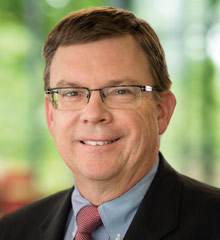Commentary on Romans 15:4-13
The vision of the coming Kingdom is broad, wide, deep, and generous.
On this Second Sunday of Advent, the text from Romans encourages us to move deeper into the vision outlined on the First Sunday. The unexpected return, the unexpected advent of the neighbor, is not something that should throw a wrench into our daily routine but is something to be joyfully welcomed as part of the baptismal journey we have engaged.
In this passage, near the end of Romans, Paul begins by actually writing about Scripture and its purpose. This purpose is surprising in itself, given our present-day debates on the nature of Scripture! Paul doesn’t write that it provides us with a moral code or a detailed recipe for a prosperous and good life. No, Scripture’s primary goal is to create hope in us. But, we must still ask, what type of hope?
Perhaps it is simply for a better, more prosperous life. Unfortunately, a too-narrow (that is self-centered) interpretation of hope is not permitted here (or most anywhere in Scripture!). The hope created by Scripture is distinctly communal. The hope that the Holy Spirit creates within me is not simply for my personal good. It is a hope that is shared with others. It is a hope in which I am a part with many others. In fact, it is the communal nature of this hope that makes it so joyful!
The communal nature of this hope is immediately witnessed in the following verses. The God of Scripture, the God therefore of this steadfastness and encouragement (note the parallels between verses 4 and 5), the God of these gifts grants us hope as “we live in harmony with one another, in accordance with Jesus Christ.” The harmony that characterizes this hope echoes the verses from Romans 13 (see the readings for last week, the First Sunday of Advent).
Loving the neighbor as yourself, seeking that which is in the best interest of the neighbor, living in this matrix of the Holy Spirit has, as a fruit of the Spirit, this harmony with one another, in accordance with Jesus Christ. It is not a harmony that we have created through self-defined interests — that belongs to the harmony any organization in the world can create (from the rotary club to the golf club to the hockey association). The harmony “in accordance with Jesus Christ” is the harmony given through the Holy Spirit. A harmony that comes from welcoming the unexpected, dying, and being raised daily to new life, to new beginnings.
“Welcome one another,” Paul continues! This welcome, this radical greeting, is the welcome offered to the one who does not look like myself, who is not a member of my “immediate” family. Perhaps this one dresses differently, celebrates different traditions, looks different, perhaps this one is even sick or without a home or in serious difficulty. No matter how ‘difference’ is defined, this one is like a Gentile (to expand the use of a Scriptural term Paul employs).
Paul is here pushing the boundaries of the community. Yes, Christ came to one particular place, was born into one particular race and a unique religious tradition, but it is precisely this particularity on God’s part that allows God to be paradoxically present in all people, in all cultures, in all flesh. The incarnation is about the infinite becoming fully embodied in the finite and yet never restricted by that finite. Christ’s coming into the world, into the house of David, is God’s coming into all of humanity, for all humanity.
This coming, the advent of Christ, can never be claimed as a privilege by one group. Rather, everyone is invited, those who are inside and those who are not, into song! I believe this is one of the most surprising twists of this reading. The goal but also the witness of living together in harmony, of welcoming one another, is communal song! The praises of God are sung in a community that welcomes one another, lives in harmony in accordance to Christ, and this song of praise is a witness to God’s glory and God’s intent for all people.
Psalm 72, appointed for this Sunday, picks up on this theme. The psalmist prays for the king of justice, for the righteous one to come, whose kingdom will bring justice to all, who is like life-giving showers, covering the earth and whose peace will abound until the end of time. Again, the vision and hope is broad, communal and all-encompassing.
As the community is invited into this praise so it is invited into this radical welcome. Christ has become the “servant” (verse 8) of one community but only to make this community’s praise a praise that opens up windows and doors. Christ assumes or takes upon himself the life of one community (in Paul’s case, the community of the circumcised) in order that the promises given to the patriarchs, the promises given to all (like stars in the heaven) might be fulfilled. We might say that the vocation of this circumcised community is precisely to now be a servant to all people.
We have here a version of Luther’s happy exchange: Christ takes upon himself everything that separates us from God and in return gives us all Christ’s benefits. This exchange is continually happening, this exchange is event, is truth in our lives, as we welcome the neighbor and as we are welcomed, as we live in harmony with one another in accordance with Jesus Christ. And because this is a liberating, hopefully and happy exchange, we sing praises to God the Father of our Lord Jesus Christ and all people witness God’s glory.

December 5, 2010